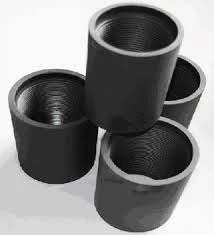- Afrikaans
- Albanian
- Amharic
- Arabic
- Armenian
- Azerbaijani
- Basque
- Belarusian
- Bengali
- Bosnian
- Bulgarian
- Catalan
- Cebuano
- Corsican
- Croatian
- Czech
- Danish
- Dutch
- English
- Esperanto
- Estonian
- Finnish
- French
- Frisian
- Galician
- Georgian
- German
- Greek
- Gujarati
- Haitian Creole
- hausa
- hawaiian
- Hebrew
- Hindi
- Miao
- Hungarian
- Icelandic
- igbo
- Indonesian
- irish
- Italian
- Japanese
- Javanese
- Kannada
- kazakh
- Khmer
- Rwandese
- Korean
- Kurdish
- Kyrgyz
- Lao
- Latin
- Latvian
- Lithuanian
- Luxembourgish
- Macedonian
- Malgashi
- Malay
- Malayalam
- Maltese
- Maori
- Marathi
- Mongolian
- Myanmar
- Nepali
- Norwegian
- Norwegian
- Occitan
- Pashto
- Persian
- Polish
- Portuguese
- Punjabi
- Romanian
- Russian
- Samoan
- Scottish Gaelic
- Serbian
- Sesotho
- Shona
- Sindhi
- Sinhala
- Slovak
- Slovenian
- Somali
- Spanish
- Sundanese
- Swahili
- Swedish
- Tagalog
- Tajik
- Tamil
- Tatar
- Telugu
- Thai
- Turkish
- Turkmen
- Ukrainian
- Urdu
- Uighur
- Uzbek
- Vietnamese
- Welsh
- Bantu
- Yiddish
- Yoruba
- Zulu
Optimal Placement of Nipple Tubing for Efficient Seating Configuration
Understanding Seating Nipple Tubing A Key Component in Pipeline Systems
In the realm of pipeline systems, various components work in harmony to ensure the safe and efficient transportation of fluids. Among these components, seating nipple tubing plays a crucial role. This article will explore what seating nipple tubing is, its applications, and its importance in various industries.
What is Seating Nipple Tubing?
Seating nipple tubing is a specialized type of tubing used predominantly in oil and gas applications. It serves as a connection point in the tubing string, allowing for the installation of downhole tools such as plugs and packers. The primary function of a seating nipple is to provide a reliable seat for these tools, ensuring they remain securely in place during operations.
The design of seating nipple tubing typically features an enlarged section (the “nipple”) and a smooth inner surface that facilitates easy deployment of downhole equipment. Made from high-strength materials, this tubing is engineered to withstand the harsh conditions found in subsurface environments, including high pressure and corrosive fluids.
Applications of Seating Nipple Tubing
Seating nipple tubing is extensively used in the oil and gas industry. Its primary application is in completing wells, where it acts as a critical interface in the tubing string. When operators need to deploy a plug or packer to isolate sections of a well for testing or production, they rely on the integrity and precision of the seating nipple.
seating nipple tubing

Additionally, seating nipples are used in various sub-surface operations such as fracturing and acidizing, where controlling fluid flow and pressure is essential. They are also employed in water injection and gas lift applications, making them versatile components within a broader range of operations.
Importance of Seating Nipple Tubing
The importance of seating nipple tubing cannot be overstated. Its design ensures that downhole tools can be deployed and retrieved efficiently. A properly functioning seating nipple prevents leaks and minimizes the risk of equipment failure, which can lead to costly downtime and environmental hazards.
Moreover, seating nipple tubing enhances overall well integrity. By providing a solid seal for downhole tools, it helps to maintain wellbore stability and prevents fluid migration between formation layers. This is crucial for both production efficiency and environmental protection.
In the context of emerging technologies, the design and manufacturing processes for seating nipple tubing continue to evolve. Advances in materials science and engineering have led to the development of tubing that can endure even harsher conditions and provide enhanced performance. As the industry seeks to optimize production while minimizing environmental impact, innovations in seating nipple technology will play a pivotal role.
Conclusion
In summary, seating nipple tubing is an indispensable component of modern pipeline systems, particularly within the oil and gas sector. Its applications range from well completion to fluid control in various sub-surface operations. Understanding its role and importance is crucial for anyone involved in pipeline construction, maintenance, and operations. As technology continues to advance, seating nipple tubing will remain a key player in ensuring the safety, efficiency, and sustainability of fluid transportation systems.
-
Tubing Pup Joints: Essential Components for Oil and Gas OperationsNewsJul.10,2025
-
Pup Joints: Essential Components for Reliable Drilling OperationsNewsJul.10,2025
-
Pipe Couplings: Connecting Your World EfficientlyNewsJul.10,2025
-
Mastering Oilfield Operations with Quality Tubing and CasingNewsJul.10,2025
-
High-Quality Casing Couplings for Every NeedNewsJul.10,2025
-
Boost Your Drilling Efficiency with Premium Crossover Tools & Seating NipplesNewsJul.10,2025







